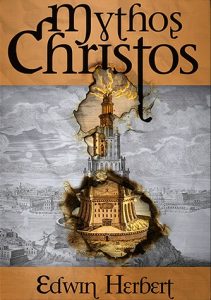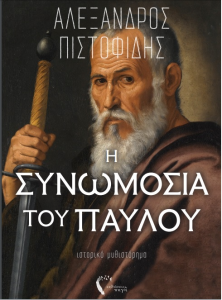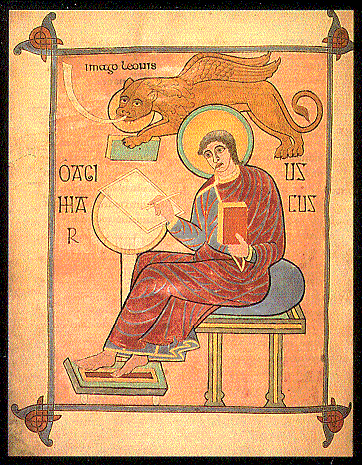This is an exploratory essay, not much more than a diary of disorganized thoughts on my recent experience with an atheist discussion forum.
After much delay I finally enrolled as a member of the Atheist Foundation of Australia (AFA) Forums to contribute to a discussion on the historicity of Jesus. I had been encouraged by the report that a growing number of members there appeared to be open to the view that Jesus possibly had no historical existence but I still should have done my own homework on the nature of the site and character of its members before submitting my first comment there. After thinking over my time there and doing some rather belated review of the forum (or congregation of forums) I believe that the best comparison I can make to that “atheist community” is that it is very like a religious cult. It is certainly a form of a religious or church substitute for the newly faithless or for the long-time faithless who have never managed to outgrow their childish level of thrill at discovering they can break rules and social norms (like, ooh, so very naughtily using offensive words as often as they feel like it) without the fear of hell hanging over them.
I also think I finally understand why so many atheists viciously attack the Christ Myth theory.
Before continuing let me list a little of the distant and immediate background to my thoughts. Firstly, I spent too many years in a religious cult in addition to a number of years doing a lot of reading of works by psychologists and others who explained the cult experience and provided assistance in recovery. (See the links in the side bar to Vridar profiles for a few details.) I know a little about cults and the cult experience. Secondly, I have recently read the following and these have no doubt more immediately helped crystallize certain thoughts on the AFA experience:
- Do intelligent people realize that they are smarter than anyone else surrounding them?
- Herwig, Holger H. 1987. “Clio Deceived: Patriotic Self-Censorship in Germany after the Great War.” International Security 12 (2): 5–44. https://doi.org/10.2307/2538811.
- Benda, Julien. 2006. The Treason of the Intellectuals. Translated by Roger Kimball. New Brunswick, NJ: Routledge. (Originally published 1928 by William Morrow, NY.)
- — I took up the Benda book in pursuing an argument made some time ago by Noam Chomsky. The Treason of the Intellectuals foreshadows Chomsky’s criticisms of today’s liberal intellegentsia. It was the Herwig article on German intellectuals that reminded me to finish reading Benda at last.
When I became an atheist I don’t recall ever having the slightest interest in searching for and associating with “an atheist community”. When I heard that such communities did exist I was perplexed. What could they possibly have in common? Atheism simply means not believing in the existence of supernatural powers. That’s hardly a basis for a club of any sort. Haven’t atheists been responsible for historic crimes against humanity? I am sure many atheists are as burdened with ugly prejudices and bigotries as anyone else. And one hardly needs to be a Stephen Hawking to come to the conclusion that “there is no god” so I squirmed in some pain when I read Richard Dawkins’ suggesting that atheists should call themselves “Brights”.
But look at the AFA Forums site. It’s like a church or cult website, a place where all the converted (or de-converted) can go to find “like-minded” people, others with presumably an accommodating perspective, to discuss any problem in life:
There is a place where you can introduce yourself and be welcomed; just like a church group where all new members are welcomed, or screened.
Then there is a “Getting Started” room for those “new to the [faith or lack thereof]” can find mutual assistance.
But I love the “conversion stories” page. “Coming Out Stories”, its called, and I am reminded of so many church gatherings where people stand up and share their stories about how they came to Christ.
Next we see a space where one can learn about an “atheists’ viewpoints on things . . . . to better understand the atheist worldview”! Do you see what is happening here? Atheism is being presented as a group identity that sets apart its members as different from others. How many atheists have really needed to consult a community or “nonspiritual” guides to learn the “atheist viewpoint or worldview” on things?
I should at this point backtrack to the site’s banner: AFA Forums is identified as “a celebration of reason”.
 Ah yes, the place for the Brights. I will return to the irony of that banner’s logo.
Ah yes, the place for the Brights. I will return to the irony of that banner’s logo.
And just like so many fundamentalist type churches we have community-run places where members can share and learn how to resolve
- Family matters
- Educational issues
- Ethics and justice
- Women’s issues
- Sexuality issues
- Mental health issues
- Political issues . . .
How convenient. It sure helps to have a place to go to relieve one of the anxiety of having to think through such questions truly independently and with one’s own research and reflection. Safety, security, nurturing, … all in the group.
Again just as cults and evangelicals have literature and go-to persons for information on science questions (how do we answer this or that question, for example) AFA helpfully provides forums to share that sort of knowledge, too.
Of course there is also the obligatory magazine. Presumably this is in part meant to evangelize and in part meant to support existing members.
Nor, of course, is the enemy forgotten. There are places one can discuss the enemies of the Brights and the Free: places bearing signs such as Continue reading “Discovering Why “Even Atheists” Deplore Jesus Mythicism. (Or, Thoughts on “Cult Atheism”)”










